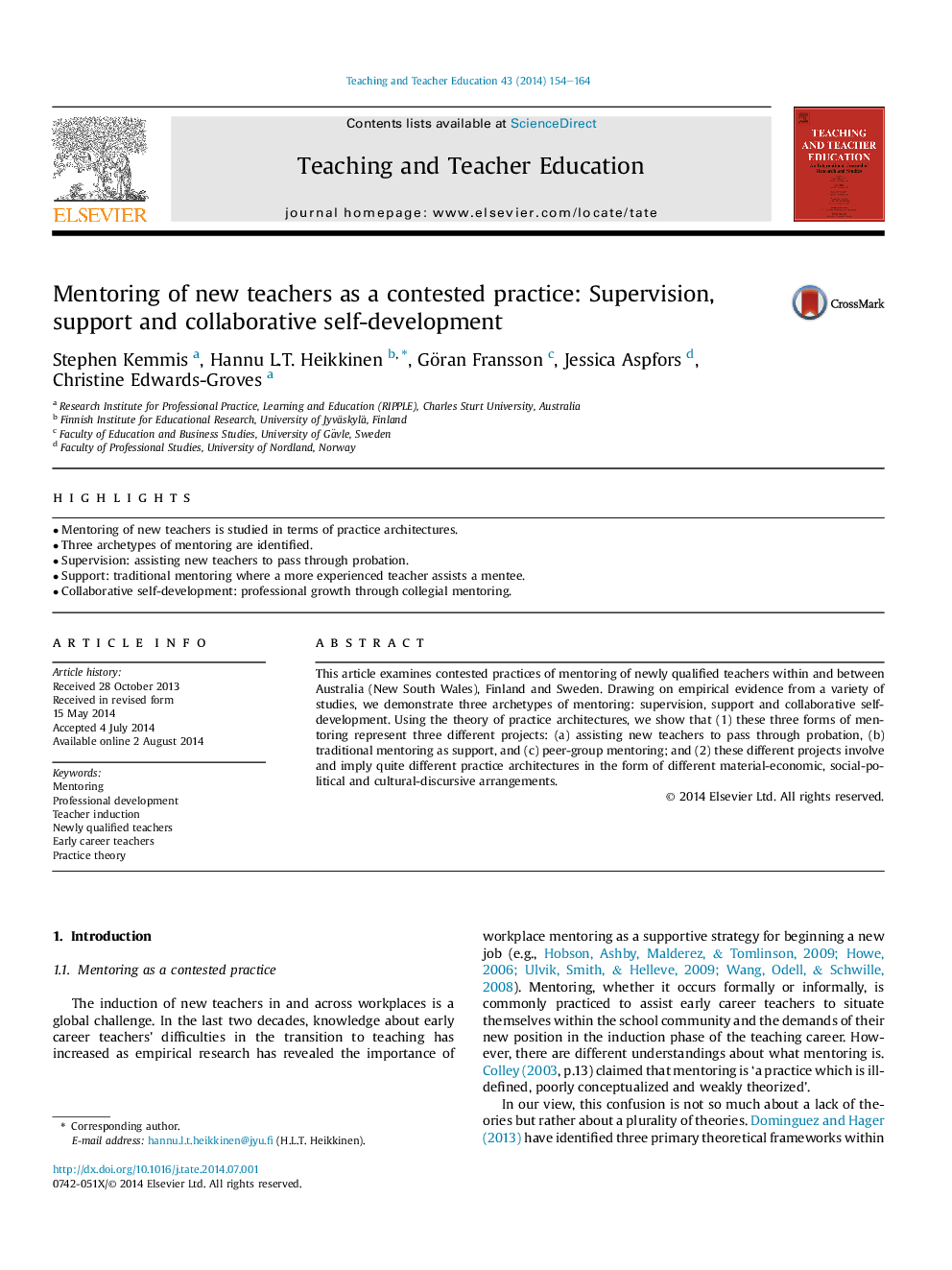| Article ID | Journal | Published Year | Pages | File Type |
|---|---|---|---|---|
| 373966 | Teaching and Teacher Education | 2014 | 11 Pages |
•Mentoring of new teachers is studied in terms of practice architectures.•Three archetypes of mentoring are identified.•Supervision: assisting new teachers to pass through probation.•Support: traditional mentoring where a more experienced teacher assists a mentee.•Collaborative self-development: professional growth through collegial mentoring.
This article examines contested practices of mentoring of newly qualified teachers within and between Australia (New South Wales), Finland and Sweden. Drawing on empirical evidence from a variety of studies, we demonstrate three archetypes of mentoring: supervision, support and collaborative self-development. Using the theory of practice architectures, we show that (1) these three forms of mentoring represent three different projects: (a) assisting new teachers to pass through probation, (b) traditional mentoring as support, and (c) peer-group mentoring; and (2) these different projects involve and imply quite different practice architectures in the form of different material-economic, social-political and cultural-discursive arrangements.
